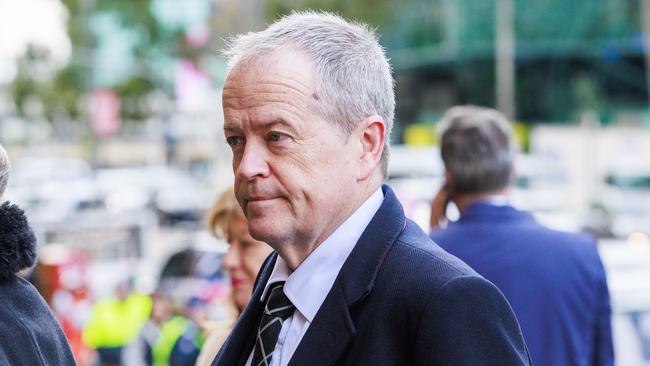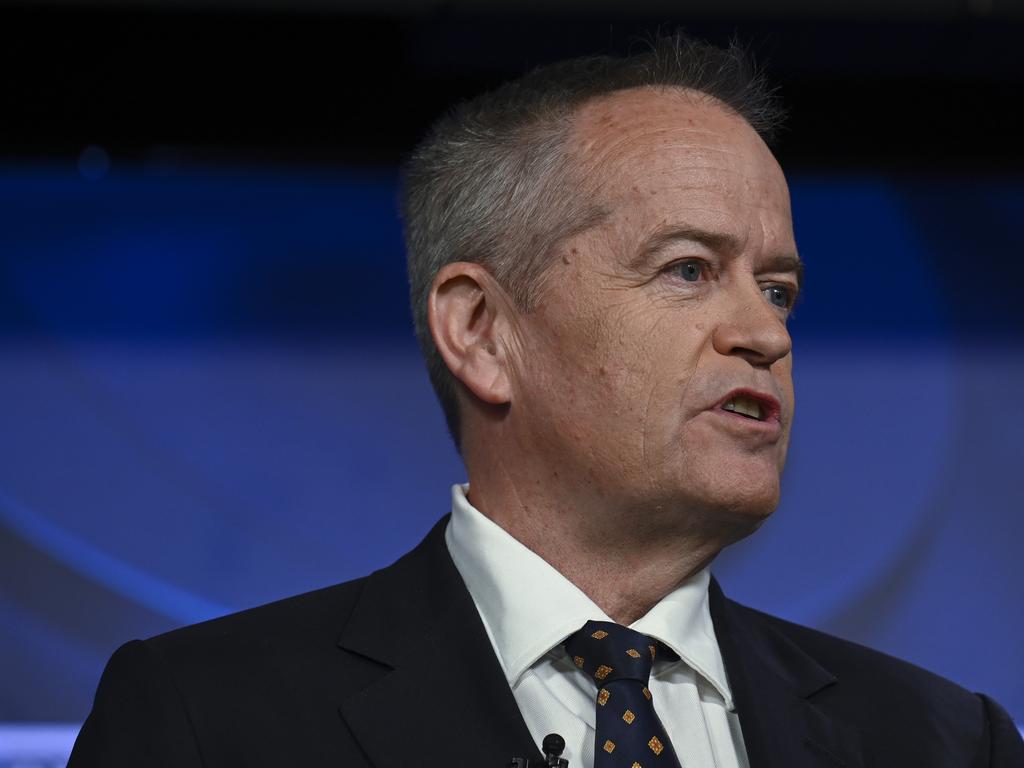NDIS Minister Bill Shorten warns of NDIS funding fail
Bill Shorten says the Commonwealth did not have enough oversight of the federal funding delivered to jurisdictions for special needs education.

States and territories are failing to deliver adequate support to disabled children in schools, with NDIS Minister Bill Shorten declaring the Commonwealth did not have enough oversight of the federal funding delivered to jurisdictions for special needs education.
Mr Shorten said the National Disability Insurance Scheme was becoming “a default funding source” for parents with disabled children who were not receiving adequate support in school, which he said was presenting a growing problem.
The sustainability of the NDIS is one of the key elements of a milestone review into the scheme, headed up by Bruce Bonyhady and Lisa Paul, with the exploding number of young people on the NDIS already identified as a major challenge.
“The federal government provides $27bn a year to the states and territories to support education. About $3bn of that $27bn is to help with the delivery of education for kids with special needs. I don’t think that’s working as well as it (could),” Mr Shorten told a roomful of disability advocates on Wednesday.
“I don’t think we have a clear enough line of sight on where that’s going and how that’s working.”
The fastest-growing NDIS cohort is children with autism and developmental delay, with more than half of the scheme’s participants aged under 18. Of those, 75 per cent have a primary diagnosis of autism or developmental delay.
Mr Shorten said he had observed mainstream schools “capping support” for children with learning needs, with the teacher shortage exasperating the issue.
“I think it is a problem,” he said. “One of the tricky issues … is that the NDIS packages are not (meant) to replace education.
“But what I do see increasingly is that the NDIS is becoming a default funding source for families who are desperate to get some support for their kids, which they’re just not getting in the school system.”
National cabinet in April announced a new cost-growth target of 8 per cent from 2026, down from the current rate of 14 per cent.
To reach this target, Labor has declared there must be an increase in “community and mainstream support” for people with disabilities, which comes under the purview of the states and territories.
“States need to honour their commitment to their citizens with disability and provide them with high-quality, inclusive healthcare, education, transport, housing, justice as is their responsibility,” Mr Shorten said earlier this year.
Mr Shorten confirmed on Wednesday the NDIS Review would report back by the end of October to state disability ministers, before being looked at by national cabinet in November.
“We need to look at what investments we’re making outside of the scheme,” he said.
The comments follow The Australian revealing submissions to the review by advocates raising concerns that children with autism were being “thrown under the bus” for the scheme’s financial sustainability problems.
Other submissions called for early educators to be trained up to identify children with autism early on and ensure fewer ended up on the NDIS.
However, unions have raised concern with teachers and childcare workers being lumped with even more responsibilities at a time when demands in the professions are higher than they have ever been.







